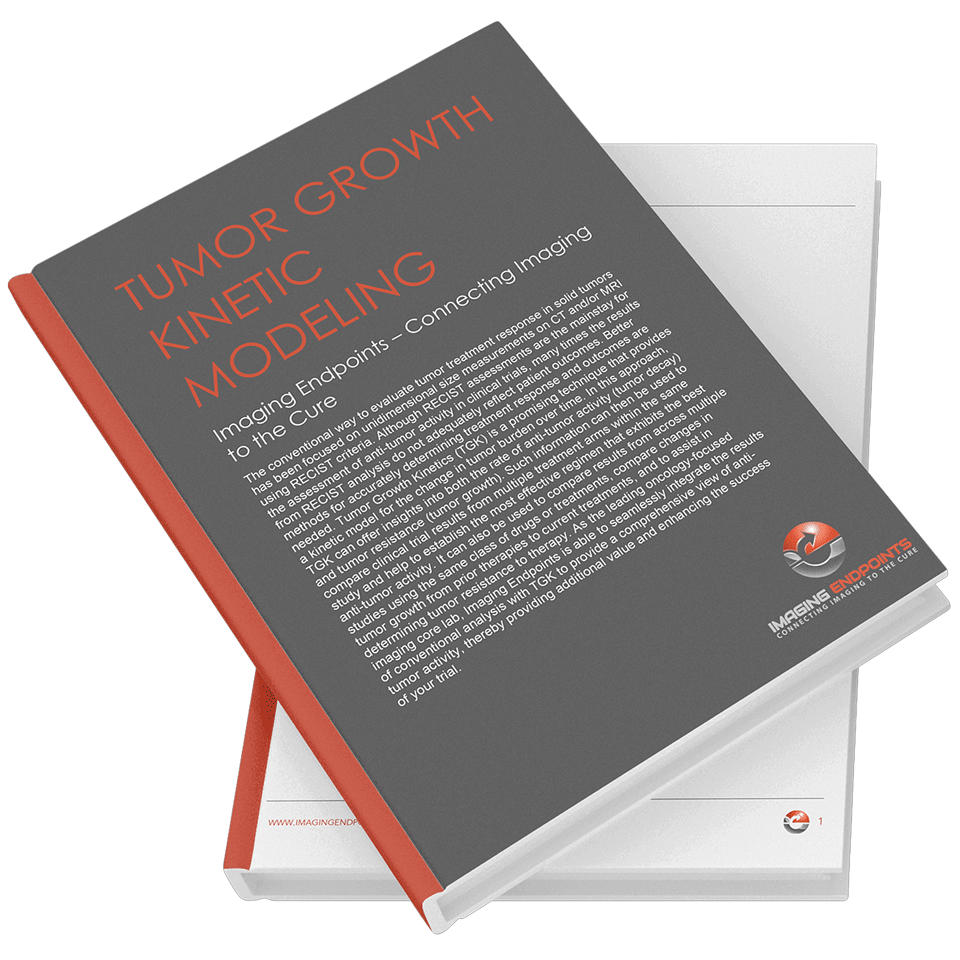
The conventional way to evaluate tumor treatment response in solid tumors has been focused on unidimensional size measurements on CT and/or MRI using RECIST criteria. Although RECIST assessments are the mainstay for the assessment of anti-tumor activity in clinical trials, many times the results from RECIST analysis do not adequately reflect patient outcomes.
Tumor Growth Kinetics (TGK) is a promising technique that provides a kinetic model for the change in tumor burden over time. In this approach, TGK can offer insights into both the rate of anti-tumor activity (tumor decay) and tumor resistance (tumor growth). Such information can then be used to compare clinical trial results from multiple treatment arms within the same study and help to establish the most effective regimen that exhibits the best anti-tumor activity.
Here we explore TGK and its implementation in clinical trials.


